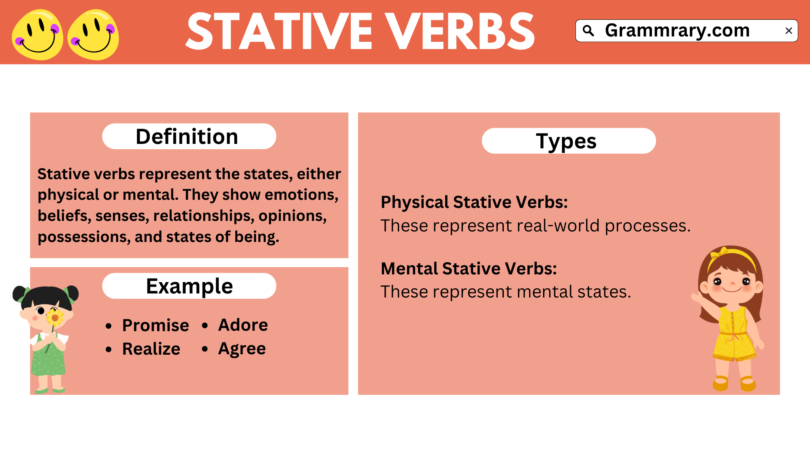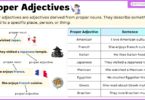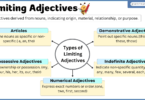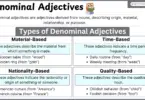Among the Types of Verbs, and unlike dynamic verbs, Stative Verbs represent states. The other terms for stative verbs are state verbs or state-of-being verbs.
What are stative verbs?
Stative verbs represent the states, either a state of being or a state of mind, instead of representing actions. They show emotions, beliefs, senses, relationships, opinions, possessions, and states of being.
Stative Verb Examples:
- Adore
- Agree
- Lack
- Promise
- Realize
The Stative Verb Example Sentences:
- One molecule of hydrogen gas consists of two hydrogen atoms.
- I don’t think that she can complete the pending tasks today.
- She loves to drink coffee every day.
- This dress costs $50.
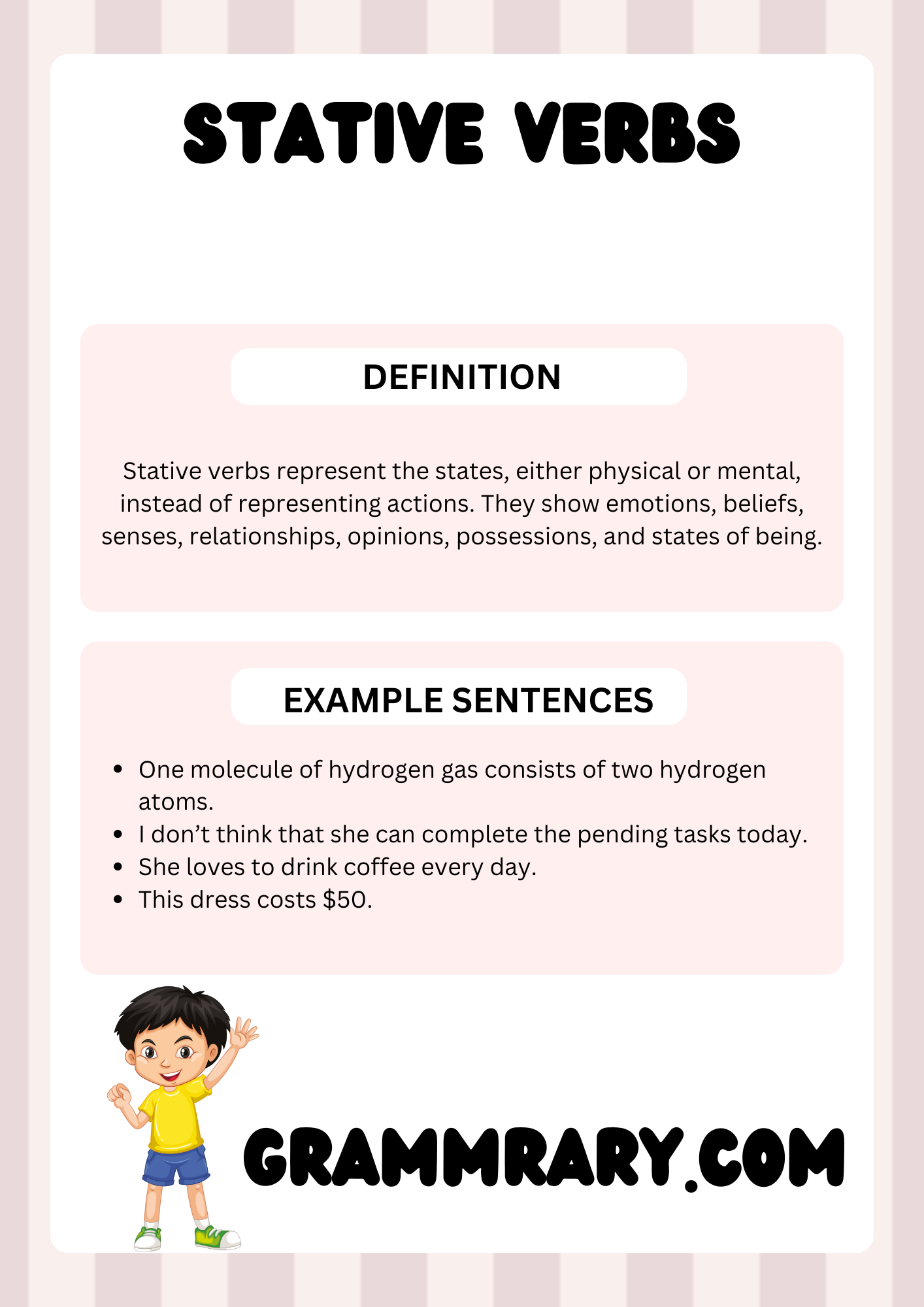
Stative Verbs Definition and Examples
Types of stative verbs
These are two types of stative verbs.
Physical Stative Verbs:
These represent real-world processes.
Examples include:
- Own
- Have
- weigh
- Contain
- Exist
- Possess
- Occupy
- Live
Mental Stative Verbs:
These types of stative verbs represent mental states.
Examples include:
- Feelings
- Beliefs
- Thoughts
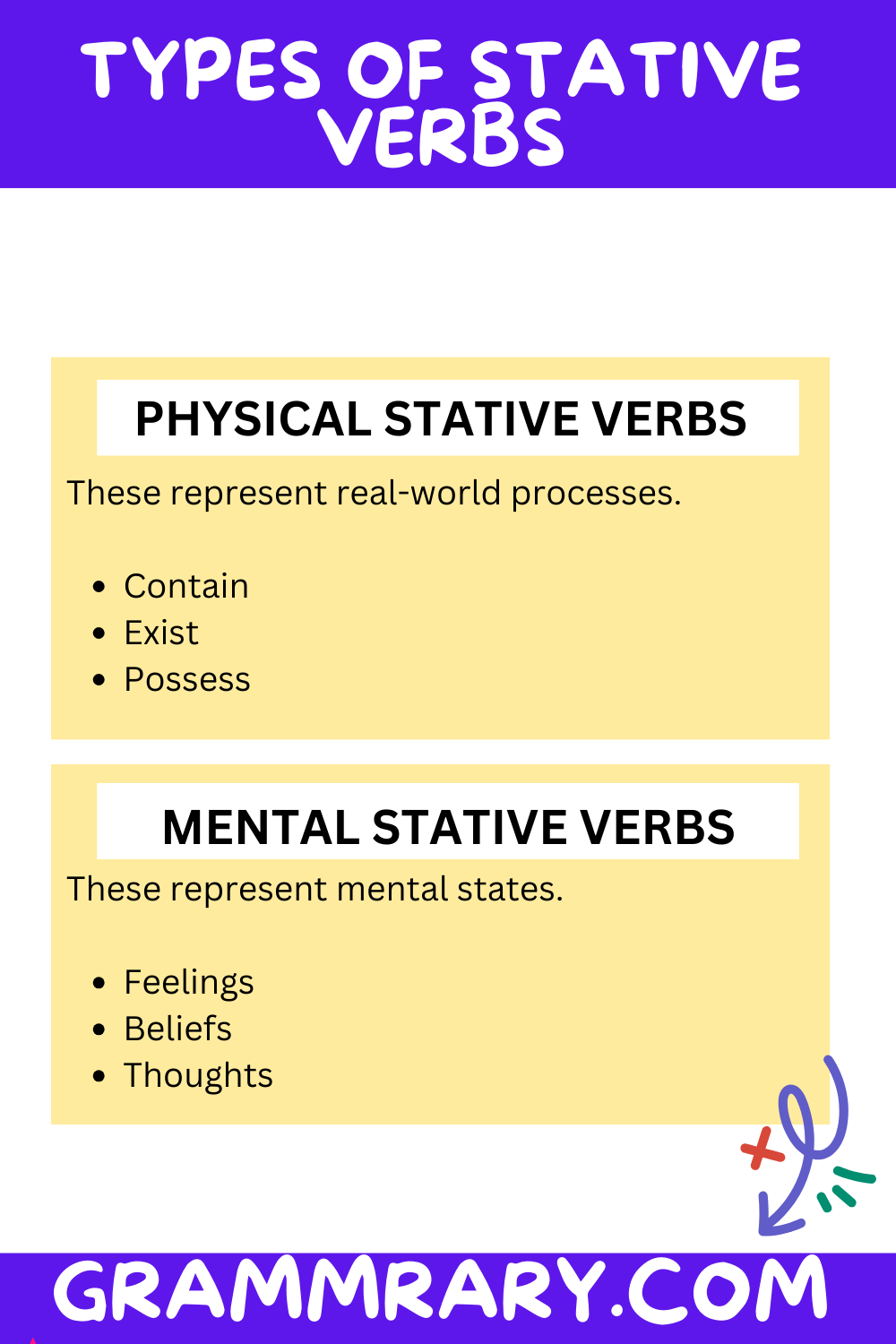
Types of Stative Verbs
What does a Stative Verb Represent?
Stative Verbs represent abstract concepts. For example:
| Opinions and beliefs | Disagree, believe, think, know, support |
| Senses | Look, appear, see, taste, hear, sound, feel, smell, and seem |
| Condition | Weigh, involve, lack, include, resemble |
| Possession | Have, possess, own, control, and belong |
| Emotions | Like, fear, hate, love, need, wish, want, and desire |
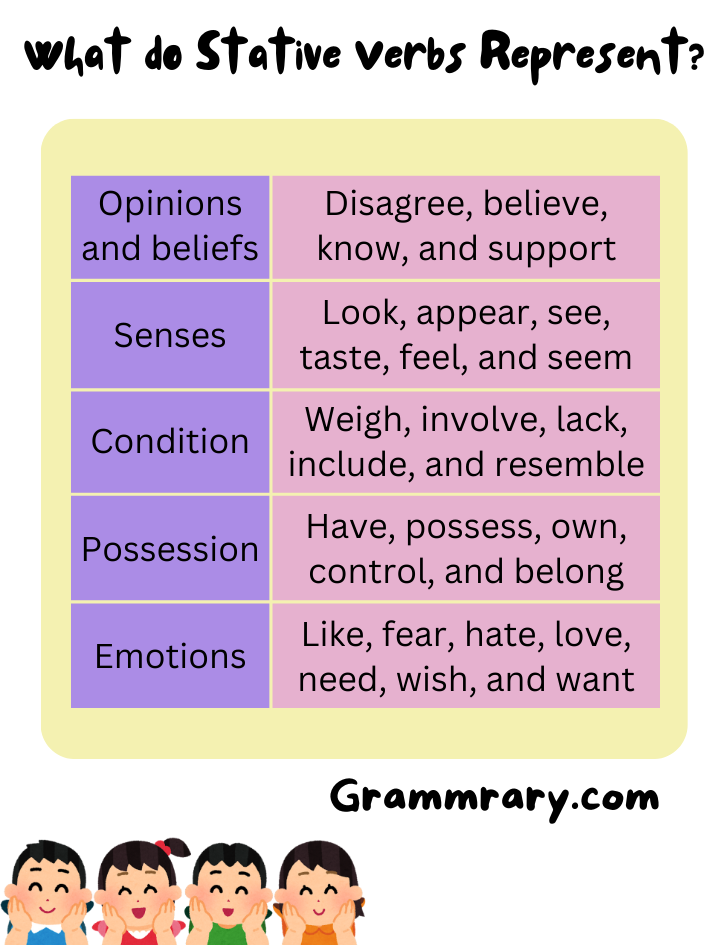
Stative Verbs usage
Correct Use of Stative Verb:
- Avoid the use of Continuous Tenses
- Prefer using Simple Tenses
- Don’t use Passive Voice
A to Z List of Stative verbs:
Here is a stative verbs list in English.
- Adore
- Agree
- Appear
- Appreciate
- Assume
- Astonish
- Be
- Believe
- Belong
- Care
- Comprehend
- Concern
- Consist
- Contain
- Deny
- Depend
- Deserve
- Despise
- Disagree
- Dislike
- Doubt
- Exclude
- Expect
- Feel
- Feel
- Fit
- Forget
- Grasp
- Hate
- Have
- Hear
- Ignore
- Imagine
- Impress
- Include
- Involve
- Know
- Lack
- Like
- Look
- Love
- Matter
- Mean
- Measure
- Mind
- Need
- Own
- Perceive
- Please
- Possess
- Prefer
- Promise
- Realize
- Recognize
- Regret
- Remember
- Satisfy
- See
- Seem
- Smell
- Sound
- Suppose
- Surprise
- Taste
- Think
- Understand
- Value
- Want
- Weigh
- Wish

List of Stative Verbs
Download Stative Verbs List PDF:
Stative Verbs Exercises:
Solve this stative verbs worksheet with Answers PDF
1- Stative Verbs are not:
- Action
- Dynamic
- Either A or B
- Both A and B
Right Answer: D
2- Indicate the type of stative Verb:
- Physical Stative Verbs
- Mental Stative Verbs
- Both A and B
- None of the Above
Right Answer: C
3- Which one is correct about the use of stative verbs?
- Avoid the use of Continuous Tenses
- Prefer using Simple Tenses
- Don’t use Passive Voice
- All of These
Right Answer: D
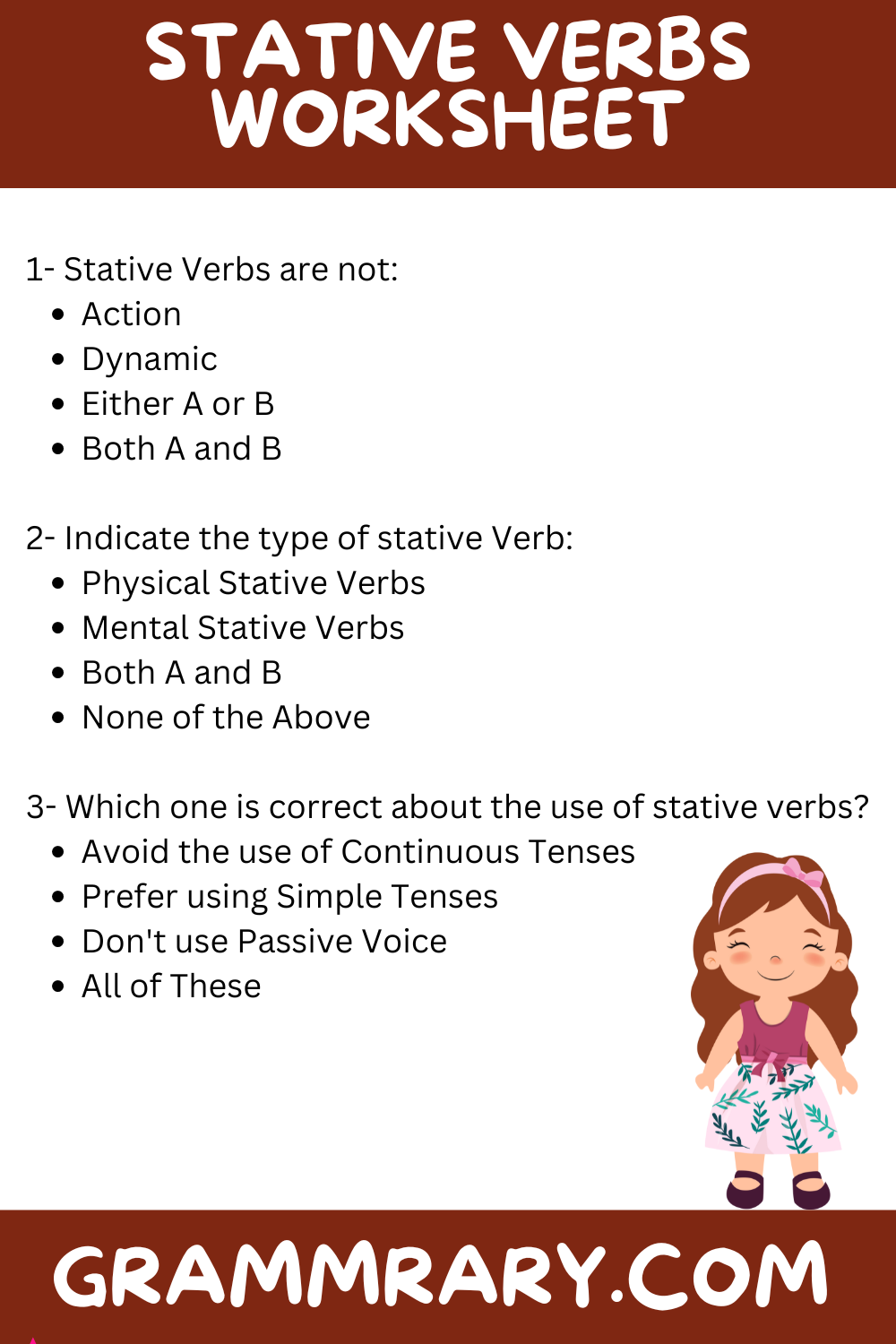
Stative Verb Exercise

